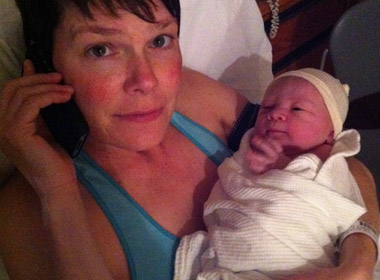A couple of weeks ago in these pages, I wrote about the then-upcoming Double Take Fringe Festival in Greenfield. Held over the weekend of Nov. 9-10, it was a two-day potpourri of short performances staged in a variety of venues all over downtown, showcasing the variety of the Valley’s performing arts and the continuing rise of the city’s cultural scene. Just after I filed that article, I was recruited to be one of the judges to award prizes at the end of the festival.
I was already planning to see at least some of the shows, and this assignment gave me the welcome necessity of seeing them all. The co-judges I traveled the two-evening festival circuit with were Milan Dragicevich, from the UMass theater faculty, and Sheryl Stoodley of the Serious Play! theater ensemble—two genial, knowledgeable colleagues and theater-lovers.
Several of the shows we saw were collections of related short pieces. They included a pair of scenes from John Cariani’s Almost, Maine, showing two couples on the verge of astounding discoveries, and a trio of excerpts from Edward Albee’s domestic tragicomedies. The Ha-Ha’s comedy troupe performed, in repertory, two long-form improvisations riffing on therapy sessions, book clubs and the women who frequent them.
The festival’s unique flavor was enhanced by shows staged in venues that mirrored their themes. Two of these held forth at opposite ends of the Arts Block, at the festival’s epicenter. Joshua Platt dug into the mysteries and miseries of relationships in the claustrophobic Wheelhouse cellar bar, while the August Company performed a lights-out reading of two ghost stories in the chilly expanse of the building’s top floor.
Seth Lepore’s multi-character tour of “the happiness industry,” including TV evangelists and self-serving media campaigns, took place in the studio of Greenfield Community Television. Kelsey Flynn’s PowerPoint-illustrated lecture on her experience as a “breast-feeding failure”—half stand-up humor, half gruesome confessional—was held in a classroom of Greenfield Community College’s Main Street annex. And in John Bechtold’s Crisscross, a sprawling, nine-actor meta-mystery, the audience followed the action all over downtown as the peripatetic plot line took us to seven disparate indoor and outdoor venues, including a railway underpass, a warehouse, a church and the eerie, cavernous lobby of an abandoned bank.
At the festival’s conclusion, the casts and crews gathered in the banquet hall of the Greenfield Grille—where one of the shows had just finished performing—for eats, drinks and prize-giving. We judges had only two prizes to bestow—one for the “Fringiest” show and one Best in Fest award. There was also a prize for the festival’s popular favorite, chosen by audience ballots. That trophy went to the Almost, Maine double bill for its crisp acting, sensitive direction and appealing blend of humor and pathos.
The judges didn’t always agree on the merits of some of the festival’s shows, but we were unanimous in wishing we had more than two prizes to confer. In the end, we happily gave the Fringiest plaque to Kelsey Flynn, whose Wrath of Mom was hands-down the most personally daring and thematically unique in the festival. And the Best-of honor went, almost by default, to Crisscross, whose imaginative concept and physical scope at once dominated and defined this festival’s diverse medley of performance.
Contact Chris Rohmann at StageStruck@crocker.com.



